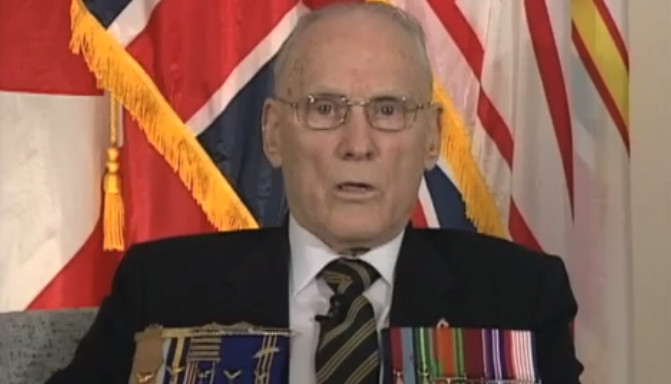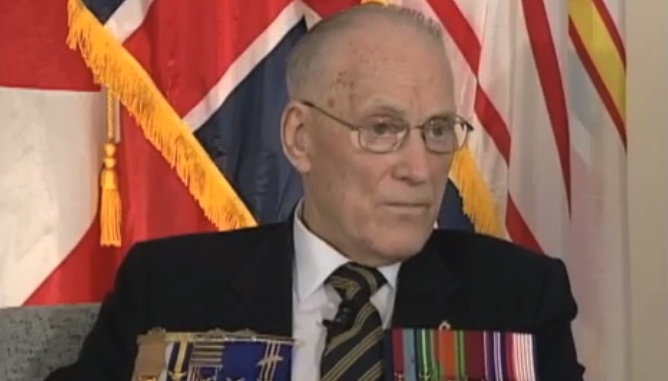Reports of the War Being Over
Heroes Remember
Reports of the War Being Over
Now “jotoni” in Japanese is no good. And we’d hear this a dozen
times a day; “American jotoni, jotoni, jotoni!” And we could
assume from that, that something could have been going on because
they weren’t telling us there was something going on, but we
could read between the lines by saying that you know,
“American jotoni!”
Interviewer: Were you men ever told by the Japanese that when
the war was over that you’d be released and allowed to go home?
No... let me say this to you. The Japanese, according to
reports, were suppose to exterminate us on the 9th day
of August, and they’d never made any indication in this
world, they never showed any respect for us anymore than the
last day until the bomb was dropped. After the bomb was
dropped, on Nagasaki, they kept us a week and I got a copy
of the report or the order given out by the Japanese commander
telling us that they were negotiating for peace and the war
is not yet over. And until such time as they get the peace
signed, you are expected to stay here and to live orderly
lives and obey the Japanese guards. Now that was on the 9th
of August they dropped that bomb, we got until the 15th.
Now from the 9th to the 15th we worked at the dockyard, but while
working at the dockyard there were many workmen making caskets,
little wooden caskets, for the Japanese that were burned in
Nagasaki. Now in case you don’t know it, they told us at that
time when the bomb was dropped there were 73,000 people killed
in Nagasaki and there was another thousands who were
suffering from radiation burns. Now we worked there for a week
and we came back to the camp one day after the week they
said, “All men Yasumi!”; now Yasumi in Japanese, of course, is
rest. Came back to the camp this day and they said,
“All men Yasumi!” And we said well now what, there’s something
going on. If we’re going to have a holiday what in the name
of good is going on, the Japanese don’t give you holidays
for nothing.
And sometime during that day someone said, “We got bully beef
tonight!" just like I’m telling yah. Bully beef, half a tin of
bully beef a man! Well he said, “if that is the case then the
war must be over, if the Japanese are going to give us half a tin
of bully beef a man there’s something transpired that we’re not
aware of!” Sure enough we got the half a tin of bully beef
a man and then from then on they still said, “we’d like for you
to stay in the camp and we’d also ask you would you like us to
stay with you to protect you?” And of course our reply to that
was, “No, you may leave the camp as soon as you like, providing
you give us your arms.” They did that, they left the camp and
there was no animosity between us and them when they left the
camp, not one bit, they passed over their arms to us,
their rifles and their bayonets, and left the camp quite quietly.
We didn’t know the war was over. So we saw this plane!
American markings on her, flying about less than a thousand feet,
oh my god we said, “there’s something going on here!”
So we got our blankets out and we wrote on the ground, “NEWS”
and the pilot saw this on the ground and he dipped his wings
made a circle around then he dropped this food package.
Anyhow, he dropped it in the water, of course it wasn’t in the
water very long and we saw the American plane, we went and dived
in the water and got the package. In that package it said,
“The Japanese had surrendered unconditionally.”
From then on it was all our way!
Related Videos
- Date modified:





